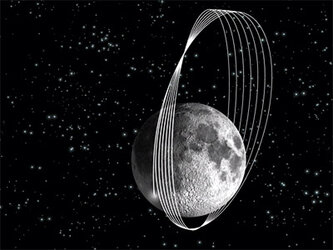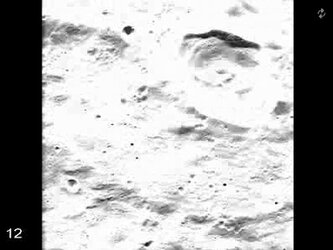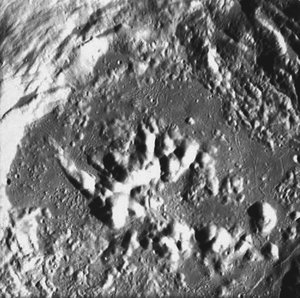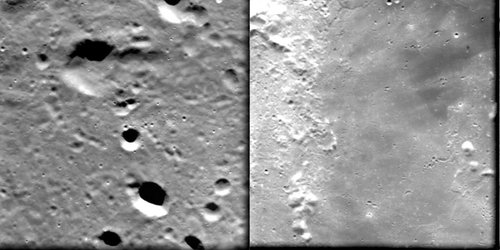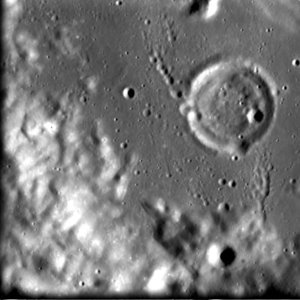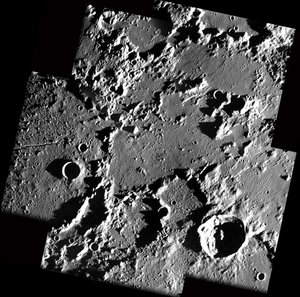Kepler Crater as seen by SMART-1
This animation, made from images taken by the advanced Moon Imaging Experiment (AMIE) on board ESA’s SMART-1 spacecraft, shows Kepler crater on the Moon.
AMIE obtained this sequence on 13 January 2006 from a distance ranging between 1613 and 1702 kilometres from the surface, with a ground resolution between 146 and 154 metres per pixel.
The imaged area is centred at a latitude of 37.8º South and longitude 9.0º East. Kepler is a small young crater situated between Oceanus Procellarum and Mare Insularum. It has a diameter of 32 km and it is 2.6 kilometres deep.
Kepler displays a ray system that overlaps with rays from other craters and which extends over 300 kilometres. The outer wall shows a slightly polygonal shape. The interior walls of the crater are slumped and slightly terraced, and descend to an uneven floor and a minor central rise.

This particular sequence of images demonstrates the so called 'tracking mode' of the SMART-1 spacecraft, used to track a fixed target when flying over it. While flying over Kepler, the clear filter of the camera was always pointed to the same position.
To stay within the thermal constraints, the spacecraft had to change its roll during the images acquisition, thus the image is slightly rotated when passing from one frame to the next.
Thanks to the tracking mode it is possible to obtain information about the size and roughness properties of the soil. It also allows multiple stereo views of the target’s topography.
Kepler crater is named after Johannes Kepler (1571-1630), German astronomer known for his three laws of planetary motion.
For more information
Jean-Luc Josset, AMIE Principal Investigator
SPACE-X Space Exploration Institute
Email: jean-luc.josset @ space-x.ch
Bernard H. Foing, ESA SMART-1 Project Scientist
Email: bernard.foing @ esa.int















 Germany
Germany
 Austria
Austria
 Belgium
Belgium
 Denmark
Denmark
 Spain
Spain
 Estonia
Estonia
 Finland
Finland
 France
France
 Greece
Greece
 Hungary
Hungary
 Ireland
Ireland
 Italy
Italy
 Luxembourg
Luxembourg
 Norway
Norway
 The Netherlands
The Netherlands
 Poland
Poland
 Portugal
Portugal
 Czechia
Czechia
 Romania
Romania
 United Kingdom
United Kingdom
 Slovenia
Slovenia
 Sweden
Sweden
 Switzerland
Switzerland


























